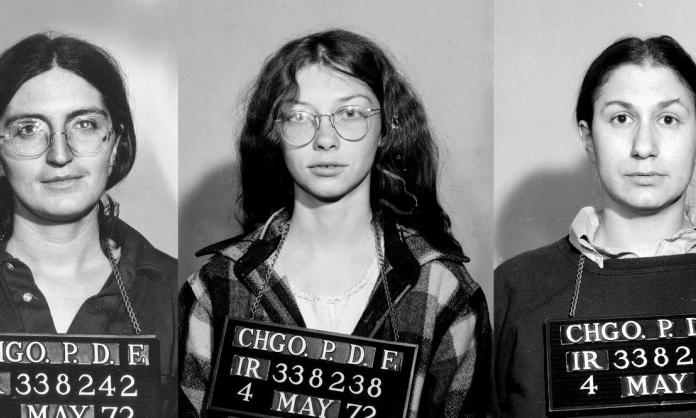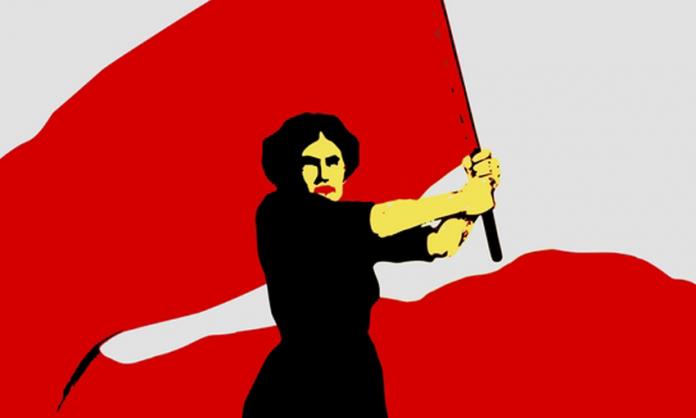In the late 1960s, cryptic notes began to appear on poles and noticeboards around Chicago, directing women who were pregnant and in trouble to “call Jane”. The number provided connected them to the Jane Collective (officially the Abortion Counselling Service of Women’s Liberation), an underground network of activists providing illegal abortions in the years before the 1973 Roe vs. Wade decision. This collective is the subject of The Janes, a new HBO documentary directed by Emma Pildes and Tia Lessin.
Chicago in the late 1960s, like much of the world, was a hotbed of protest and activism. The civil rights movement, marches against the Vietnam War and a host of other connected struggles radicalised a generation. Police crackdowns, most famously at the 1968 Democratic National Convention, imbued activists with a distrust of the state and its authorities. Out of this upsurge emerged the Jane Collective.
Pildes and Lessin interviewed more than a dozen women who were connected to the collective, as either members or clients. The women of Jane came from a variety of backgrounds—some were activists, some were college students and others women who had at one stage needed abortions themselves. Many came straight from the civil rights and anti-war movements, inspired by the possibilities opened up by these struggles. Some were frustrated with the sexist attitudes and machismo that coloured sections of the movement. All were influenced in one way or another by the political climate of the time, inspired to organise for themselves a service that the state had decisively denied them.
These links between the broader radical upsurge and the work of the Jane Collective are a point of emphasis throughout the film. It’s notable that the first surgeon the women established a relationship with was himself a leading figure in the civil rights movement—a Mississippi doctor named T.R.M. Howard, who was forced to flee his home state after being put on a Ku Klux Klan death list for speaking out against the murder of Emmett Till. The widespread radicalisation in Chicago gave the Jane Collective not just the political inspiration but the connections they needed to operate a service that made them criminals in the eyes of the law.
The Jane Collective wasn’t the only underground abortion service. Many women needing abortions in Chicago were forced to turn to the local Mafia. The connections with the mob entrenched a sense that abortion was something illicit, seedy and shameful. And with raking in extortionate fees their main objective, the Mafia’s abortionists treated their patients like cattle. Botched mob abortions would frequently leave women in life-threatening situations, regularly filling the city’s septic abortion wards.
The collective’s approach—informed by a desire to provide a quality and compassionate service—was everything the mob’s was not. The women of Jane took care to talk their patients through the procedure, breaking the silence around women’s health that had been deliberately cultivated by a deeply sexist society. They kept in touch for several weeks afterwards, and charged very little, often nothing at all.
The humanity and solidarity imbued in the collective on the one hand, and the appalling state of women’s health care on the other meant that, for many clients, getting an abortion through Jane was, in the words of one woman, “the best medical experience I’ve ever had”. It was a profound moment for many women who had spent their lives being dismissed by the medical establishment, and were now offered a glimpse of another kind of society. It inspired some to join the network themselves.
There are real limits to organisational strategies like those pursued by the Jane Collective. As inspiring and important as their work was, small networks that operate outside the law to provide services denied by the state cannot pose a serious challenge to the system. It was ultimately the mass involvement of people in protests and strikes that forced real (if temporary) changes to the conditions of women in the US. And it will take a similarly broad and disruptive movement to push against this latest attack from the right.
But The Janes still holds useful lessons for socialists today. It reaffirms the argument often made by activists organising around abortion—that criminalisation doesn’t stop women having abortions; it just makes them less safe. It also demonstrates, as socialists have always argued, that abortion is a class question. Following the 1970 decision to legalise abortion in New York, the collective lost many of its middle- and upper-class clients, who could afford the trip interstate; meanwhile, the Janes continued to serve greater numbers of poor and working-class women of colour.
In interviews, Pildes and Lessin often emphasise that they didn’t produce the film as an educational tool or a way to convince the mass of people that abortion is something worth defending. They rightly argue that this is not the task at hand. Public opinion in the US is already in favour of protecting abortion—it’s a vocal section of the right that is behind this attack.
“We have the majority”, said Pildes in an interview with Variety. “We just have to be reminded that we have to express that, we have to take to the streets, we have to do what we can to be accounted for as the 70 percent and the majority.”
The Janes is rooted firmly in the late 1960s and early 1970s, using a wealth of archival footage to build a portrait of Chicago’s radical heyday. But released just weeks before a historic decision to overturn Roe vs. Wade was issued by the Supreme Court, it can’t help but be coloured with a sense of urgency.
“It was during that summer that I learned that sometimes you have to stand up to illegitimate authority. And sometimes there are unjust laws that need to be challenged”, says founding member Heather Booth. It’s a lesson we should take heed of today.









